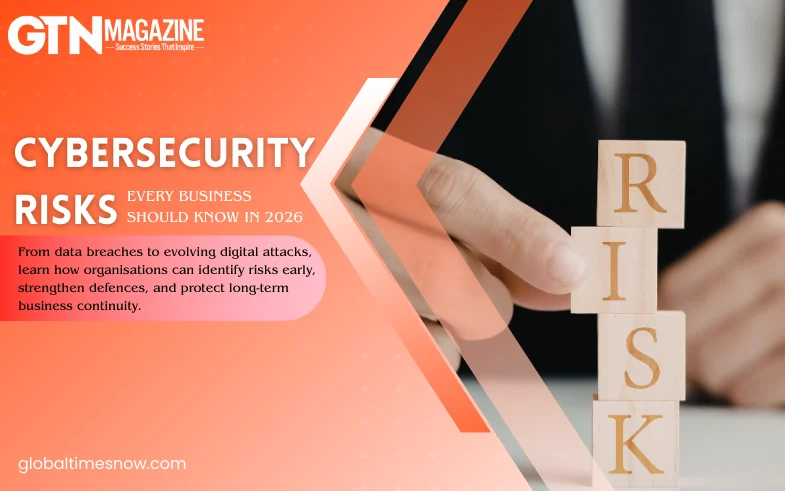In today's world, money has evolved beyond just coins and paper notes. As technology advances, so do the ways in which people manage, invest, and grow their money. Two of the most popular methods in modern finance are investing in stocks and trading cryptocurrency. These concepts, though complex, are important to understand, even for young learners. In this blog, we will explore what stocks and cryptocurrency are, how they work, their differences, the risks involved, and how you can start investing in them. By the end, you’ll have a clear and simple understanding of these fascinating financial tools.
What Are Stocks?
Stocks as Ownership Pieces
Think about a company like it’s a big, delicious cake. Now, imagine that this cake can be sliced into many small pieces. Each slice represents a "share" or a "stock" of that company. When you buy a share, you are essentially buying a small piece of the company, just like owning a slice of the cake.
How Companies Use Stocks
Companies need money to grow, make new products, or open more stores. Instead of borrowing all the money from a bank, they can sell shares to people like you and me. When people buy these shares, the company gets money, and in return, those people become part-owners of the company.
Types of Stocks
There are two main types of stocks: common stocks and preferred stocks.
-
Common Stocks: These are the most common type of stock. When you own common stocks, you have a say in how the company is run. You can vote on important decisions, like choosing the company's leaders. Common stocks also allow you to earn dividends, which are small payments given to shareholders when the company makes a profit.
-
Preferred Stocks: Preferred stocks are a bit different. They don’t usually give you voting rights, but they do offer higher dividends. If the company faces trouble, preferred shareholders are paid first before common shareholders.
Buying a Share
When you decide to buy a share, you become what’s called a "shareholder." Being a shareholder means you own a tiny part of the company. For example, if you buy one share of a big car company, you own a small part of that car company. If the company does well, the value of your share might go up. But if the company doesn’t do well, the value of your share might go down.
How Stocks Make Money
There are two primary ways that stocks can make you money:
-
Dividends: Some companies share their profits with shareholders by paying them dividends. Think of dividends as a reward for owning a piece of the company. It’s like getting a small slice of cake for being a part-owner. Not all companies pay dividends, though. Some might choose to reinvest their profits into growing the company instead.
-
Selling the Shares: If the company you’ve invested in does well, the price of its shares might go up. For example, if you bought a share for £10 and later the price goes up to £15, you can sell it for a £5 profit. This is called capital appreciation, and it’s one of the main ways people make money from stocks.
Risks of Buying Stocks
Investing in stocks can be exciting, but it’s not without risks. Here are some key risks to be aware of:
-
Price Fluctuations: Just like the prices of toys or games can go up and down, the prices of shares can also change. If the company is doing well, the share price might go up. But if the company faces problems, the share price can go down. If you need to sell your shares when the price is low, you might lose money.
-
Company Performance: A company’s performance can be affected by many factors, such as competition, economic conditions, or changes in management. If the company doesn’t perform well, it could affect its ability to pay dividends or even stay in business.
-
Market Risks: Sometimes, the entire stock market can go through tough times, even if the companies you’ve invested in are doing well. This is known as market risk, and it can lead to a decrease in the value of your shares.
-
Liquidity Risks: Liquidity refers to how easily you can buy or sell an asset without affecting its price. Some stocks, especially those of smaller companies, may not be as liquid. This means it might be harder to sell your shares quickly if you need to.
Diversifying Your Stock Investments
One way to manage the risks associated with stocks is to diversify your investments. This means spreading your money across different stocks instead of putting it all into one company. By owning shares in different companies, you reduce the chances of losing money if one company doesn’t perform well. It’s like having different types of toys to play with, so if one breaks, you still have others to enjoy.
What Is Cryptocurrency?
Digital Money
Cryptocurrency is a type of money, but unlike the coins and notes you’re familiar with, it’s completely digital. This means you can’t hold it in your hand or keep it in your piggy bank. Instead, cryptocurrency exists only on computers and the internet. The most well-known cryptocurrency is called Bitcoin, but there are many others, like Ethereum, Litecoin, and Ripple.
How Cryptocurrency Works
Cryptocurrency is a bit like the tokens you use at an arcade. You can use them to play games or exchange them for prizes, but they only work at that specific arcade. Similarly, cryptocurrency can be used to buy things online or exchanged for traditional money, but it works in a special, digital way.
Blockchain Technology
The magic behind cryptocurrency is something called "blockchain technology." Think of a blockchain as a giant, digital notebook that keeps track of every transaction made with cryptocurrency. This notebook is very secure because it’s not kept in just one place; instead, it’s shared across many computers around the world. This makes it nearly impossible to change or hack.
Mining Cryptocurrency
Some people "mine" cryptocurrency. But unlike mining for gold or coal, mining cryptocurrency involves solving very difficult puzzles on a computer. When someone solves one of these puzzles, they are rewarded with a new piece of cryptocurrency. This is how new bitcoins and other cryptocurrencies are created.
Using Cryptocurrency
You can use cryptocurrency to buy things online, pay for services, or even invest, hoping its value will go up. Some people like using cryptocurrency because it allows them to make payments quickly and anonymously. However, not all places accept cryptocurrency, so its use is still somewhat limited.
Storing Cryptocurrency
Since cryptocurrency is digital, it needs to be stored in a special place called a "digital wallet." A digital wallet is like a bank account, but it’s used only for cryptocurrency. You can have a digital wallet on your computer, smartphone, or even on a special device made just for storing cryptocurrency. It’s important to keep your digital wallet safe because if someone hacks it, you could lose your cryptocurrency.
The Differences Between Stocks and Cryptocurrency
Ownership vs. Digital Money
The biggest difference between stocks and cryptocurrency is what you actually own. When you buy stocks, you own a part of a company. This means you have a stake in the company’s success. If the company does well, your shares might increase in value, and you might receive dividends. On the other hand, when you buy cryptocurrency, you’re not buying a part of a company. Instead, you’re buying digital money that you can use, save, or trade.
Regulation and Government Oversight
Stocks are usually regulated by governments, which means there are strict rules that companies and investors must follow. This regulation helps protect investors and ensures that companies operate fairly and transparently. For example, in the United Kingdom, stocks are regulated by the Financial Conduct Authority (FCA).
Cryptocurrency, however, is not as heavily regulated. Because it’s a relatively new technology, many governments are still figuring out how to regulate it. This lack of regulation can make cryptocurrency more risky. On the one hand, it offers more freedom and fewer rules, but on the other hand, there are fewer protections for investors.
Volatility and Price Changes
Both stocks and cryptocurrency can go up or down in value, but cryptocurrency is known for being much more volatile. This means its price can change very quickly, sometimes within minutes or hours. For example, the price of Bitcoin has been known to rise or fall by thousands of pounds in a single day. Stocks, while also subject to price changes, typically don’t experience such extreme fluctuations in such a short time.
Accessibility and Use
Stocks are typically bought and sold through stock exchanges, like the London Stock Exchange or the New York Stock Exchange. These exchanges are open during specific hours, and there are certain rules and procedures for buying and selling shares.
Cryptocurrency, on the other hand, can be traded 24/7, because it exists online. You can buy and sell cryptocurrency at any time, from anywhere in the world, as long as you have an internet connection. Additionally, cryptocurrency can be used for more than just trading; it can be used to make purchases, transfer money to others, or even participate in new forms of digital investments.
Why People Invest in Stocks and Cryptocurrency
Growing Your Wealth
One of the main reasons people invest in stocks and cryptocurrency is to grow their wealth over time. By making smart investments, you can increase the value of your money, allowing you to buy more things in the future, save for big goals like buying a house, or plan for retirement.
Diversification: Spreading the Risk
Investing in different assets, like stocks and cryptocurrency, is a strategy called diversification. It’s like having a mix of different fruits in your basket. If one fruit goes bad, you still have others to eat. In the same way, if one of your investments doesn’t perform well, others might do better, helping to balance out the risks.
Inflation Protection
Inflation is when the prices of goods and services increase over time. If inflation is high, the money you have today won’t buy as much in the future. For example, if a toy costs £10 today, it might cost £12 next year due to inflation. By investing in stocks or cryptocurrency, people try to protect their money from losing value because these investments have the potential to grow faster than inflation.
Technology and Innovation
Many people are excited about investing in cryptocurrency because it represents the future of technology and finance. Cryptocurrencies and the blockchain technology that supports them have the potential to change how we think about money, banking, and even the internet. By investing in cryptocurrency, people feel like they are participating in a technological revolution.
The Thrill of the Market
For some people, investing is not just about making money; it’s also about the excitement and challenge of the market. Watching your investments grow, making decisions about when to buy or sell, and following market trends can be thrilling. It’s like playing a game where the goal is to grow your wealth, but it’s important to remember that it’s a game with real money at stake.
How to Start Investing in Stocks
Do Your Research
Before you start investing in stocks, it’s important to do your homework. This means learning about the companies you’re interested in, understanding their business models, and keeping up with news and trends in the industry. You can read financial news, follow market analysts, or use online resources to learn more about potential investments. The more you know, the better decisions you’ll be able to make.
Opening a Brokerage Account
To buy and sell stocks, you need a brokerage account. A brokerage account is like a special bank account that allows you to trade stocks. There are many different brokerage firms to choose from, each with its own set of fees, tools, and services. Some brokerages offer online platforms where you can trade stocks yourself, while others offer advice and manage your investments for you.
Start Small and Build Confidence
It’s wise to start small when you first begin investing. You might buy just a few shares of a company you believe in and watch how they perform over time. This helps you learn about the market and build confidence without risking too much money. As you gain more experience, you can gradually increase your investments.
Long-Term vs. Short-Term Investing
When it comes to stocks, there are two main strategies: long-term investing and short-term trading.
-
Long-Term Investing: Long-term investors buy shares with the intention of holding onto them for many years. They believe in the company’s future and are willing to wait for their investments to grow. This strategy is less risky and can provide steady returns over time.
-
Short-Term Trading: Short-term traders, also known as "day traders," buy and sell shares quickly, often within the same day. They try to make money from small price changes. While this can be profitable, it’s also very risky and requires a lot of time and attention.
Tracking Your Investments
Once you’ve bought shares, it’s important to keep track of your investments. This means regularly checking the prices of your shares, reading news about the companies you’ve invested in, and monitoring market trends. Keeping a close eye on your investments helps you make informed decisions about when to buy more shares, sell your shares, or hold onto them.
How to Start Investing in Cryptocurrency
Choosing the Right Cryptocurrency
There are many different cryptocurrencies to choose from, and each one works a bit differently. Bitcoin is the most well-known and has been around the longest, but there are many others like Ethereum, Litecoin, and Ripple. Before investing, it’s important to research each cryptocurrency to understand how it works, its potential for growth, and its risks.
Using a Cryptocurrency Exchange
To buy and sell cryptocurrency, you’ll need to use a cryptocurrency exchange. A cryptocurrency exchange is like a digital marketplace where you can trade different cryptocurrencies. Some popular exchanges include Coinbase, Binance, and Kraken. When choosing an exchange, consider factors like security, fees, and the variety of cryptocurrencies available.
Setting Up a Digital Wallet
After buying cryptocurrency, you need a place to store it. This is where a digital wallet comes in. A digital wallet is a secure place where you can store your cryptocurrency. There are different types of wallets:
-
Hot Wallets: These are digital wallets that are connected to the internet. They are easy to use but can be vulnerable to hacking.
-
Cold Wallets: These are digital wallets that are not connected to the internet, making them more secure from hackers. Cold wallets can be hardware devices, like a USB stick, or even a piece of paper with your private keys written on it.
Learning to Trade Cryptocurrency
Trading cryptocurrency is different from trading stocks. Cryptocurrency prices can change very quickly, so it’s important to stay informed and be prepared to make quick decisions. Some people choose to trade cryptocurrency full-time, while others prefer to buy and hold their coins, hoping they’ll increase in value over time.
Understanding the Risks
Cryptocurrency can be very exciting, but it’s also very risky. Prices can rise or fall dramatically in a short period. Additionally, because cryptocurrency is not as regulated as stocks, there is a higher risk of scams and fraud. It’s important to be cautious and only invest money you can afford to lose.
Risks of Investing in Cryptocurrency
Price Volatility
Cryptocurrency is known for its extreme price volatility. This means that the price of a cryptocurrency can go up or down very quickly. For example, Bitcoin might be worth £30,000 one day and drop to £25,000 the next. This can be very exciting if the price goes up, but it can also be very scary if the price goes down, especially if you need to sell your cryptocurrency quickly.
Security Concerns
Because cryptocurrency is digital, it is vulnerable to hacking. If someone hacks into your digital wallet or the exchange where you keep your cryptocurrency, they could steal your coins. Unlike traditional bank accounts, there is no insurance for lost or stolen cryptocurrency, so once it’s gone, it’s gone for good.
Regulatory Risks
As mentioned earlier, cryptocurrency is not as regulated as stocks. This means there are fewer rules and protections for investors. Governments around the world are still figuring out how to regulate cryptocurrency, and new laws could affect the value or legality of your investments. It’s important to stay informed about changes in regulations that could impact your cryptocurrency holdings.
Lack of Consumer Protections
With traditional investments, like stocks, there are laws in place to protect investors from fraud and ensure that companies operate fairly. These protections are not as strong in the world of cryptocurrency. If something goes wrong, like if an exchange shuts down or a cryptocurrency project fails, there may be little you can do to recover your money.
Tips for Safe Investing
1. Only Invest What You Can Afford to Lose
Whether you’re investing in stocks or cryptocurrency, it’s important to remember that all investments carry risk. Never invest money that you can’t afford to lose. This way, if things don’t go as planned, you won’t be left in a difficult financial situation.
2. Do Your Homework
Before investing in anything, make sure you understand it well. Research the company or cryptocurrency, learn about the risks, and consider the potential rewards. The more informed you are, the better decisions you’ll be able to make.
3. Diversify Your Investments
Don’t put all your money into one stock or one type of cryptocurrency. By spreading your investments across different assets, you reduce the risk of losing everything if one investment doesn’t perform well. Diversification is a key strategy for managing risk.
4. Stay Informed and Be Patient
The world of stocks and cryptocurrency changes quickly. It’s important to stay informed about market trends, news, and any developments that could affect your investments. At the same time, be patient. Investing is a long-term game, and it’s important not to panic when prices go up or down.
5. Use Secure Platforms
When buying stocks, choose a reputable brokerage firm. When buying cryptocurrency, use a trusted exchange and secure your digital wallet. Always be cautious of scams and never share your private keys or passwords with anyone.
Conclusion
Stocks and cryptocurrency offer exciting opportunities to grow your wealth, but they also come with risks. By understanding the basics of how they work, the differences between them, and the potential risks involved, you can make informed decisions and invest wisely. Whether you choose to invest in stocks, cryptocurrency, or both, remember to do your research, start small, and always be aware of the risks. With careful planning and patience, you can navigate the world of investing and build a brighter financial future.
You may also like:-























